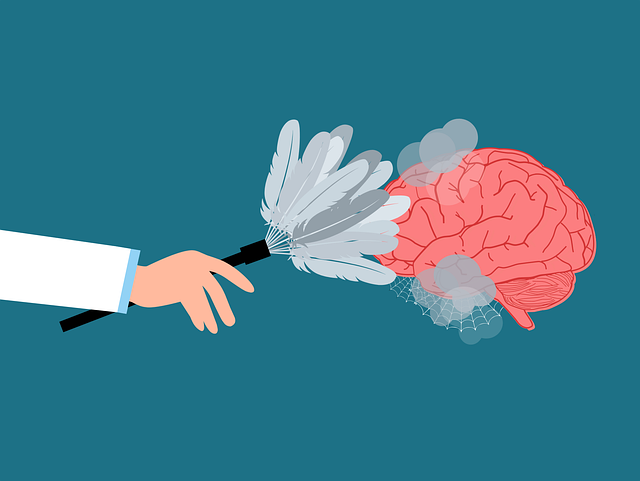Englewood Crisis Counseling Therapy leverages positive thinking as a transformative tool, helping clients cultivate optimism and resilience. By challenging negative thoughts with constructive beliefs, individuals gain self-esteem, emotional intelligence, and healthy coping mechanisms. Through mindfulness techniques, self-reflection, journaling, and engaging in joyful activities, they build resilience to navigate life's challenges, leading to improved mental health, increased satisfaction, and a more optimistic perspective.
Positive thinking is a powerful tool that can transform lives, offering a path to resilience and well-being. This article explores the implementation of a positive thinking exercise, providing a practical guide for individuals seeking better mental health. We delve into the science behind positive psychology and its impact on overall well-being, offering actionable steps from Englewood Crisis Counseling Therapy specialists. Learn how to cultivate a positive mindset, boost happiness, and reduce stress through simple yet effective practices.
- Understanding Positive Thinking and Its Impact
- Implementing the Exercise in Practice
- Benefits and Tips for Sustaining a Positive Mindset
Understanding Positive Thinking and Its Impact

Positive thinking is a powerful tool that can transform an individual’s life and outlook on the world. It involves cultivating optimistic thoughts, focusing on personal growth, and recognizing the abundance in one’s life. This mental practice has been proven to have significant benefits for mental health and overall well-being. By embracing positive thinking, individuals can enhance their resilience, improve coping mechanisms, and reduce stress levels.
Englewood Crisis Counseling Therapy emphasizes the importance of understanding that positive thinking is not about ignoring life’s challenges but rather approaching them with a hopeful mindset. This practice encourages clients to challenge negative thought patterns and replace them with more constructive and realistic beliefs. The process fosters self-care routine development for better mental health, where individuals learn to prioritize their emotional well-being. Moreover, building resilience through positive thinking can significantly impact one’s ability to navigate life’s twists and turns, leading to greater satisfaction and fulfillment.
Implementing the Exercise in Practice

Implementing the positive thinking exercise requires a consistent commitment to self-awareness and reflection. At Englewood Crisis Counseling Therapy, we guide individuals through this process by encouraging them to start each day with a mindful review of their thoughts and emotions. This practice fosters self-esteem improvement by helping people challenge negative thought patterns and replace them with more constructive ones.
By integrating these self-awareness exercises into daily routines, individuals can develop effective coping skills that enhance their ability to navigate life’s challenges. The goal is not to eliminate all negative thoughts but to equip individuals with the tools to manage them healthily. This approach allows for a gradual shift in perspective, leading to increased resilience and improved overall well-being.
Benefits and Tips for Sustaining a Positive Mindset

Englewood Crisis Counseling Therapy offers a wealth of benefits for those seeking to cultivate and sustain a positive mindset. By regularly practicing positive thinking exercises, individuals can experience improved emotional well-being, enhanced resilience, and increased life satisfaction. These practices empower people to reframe negative thoughts, fostering a sense of optimism and gratitude that permeates all aspects of their lives.
To maintain this positive outlook, it’s crucial to incorporate certain strategies into daily routines. One effective tip is to focus on the present moment, using mindfulness techniques to quiet the mind and appreciate the little things. Additionally, cultivating emotional intelligence and emotional regulation skills helps individuals understand and manage their feelings, fostering a more optimistic perspective. Regular self-reflection, journaling, and engaging in activities that bring joy are also invaluable tools for sustaining a positive mindset.
Englewood Crisis Counseling Therapy (ECCT) highlights the power of positive thinking as a transformative tool. By implementing simple exercises, individuals can cultivate a more optimistic mindset, leading to improved mental well-being and enhanced resilience. Through practical application and consistent practice, these techniques offer a lasting approach to navigate life’s challenges. Embrace the benefits of positive thinking, and let ECCT guide you towards a brighter, more hopeful future.














